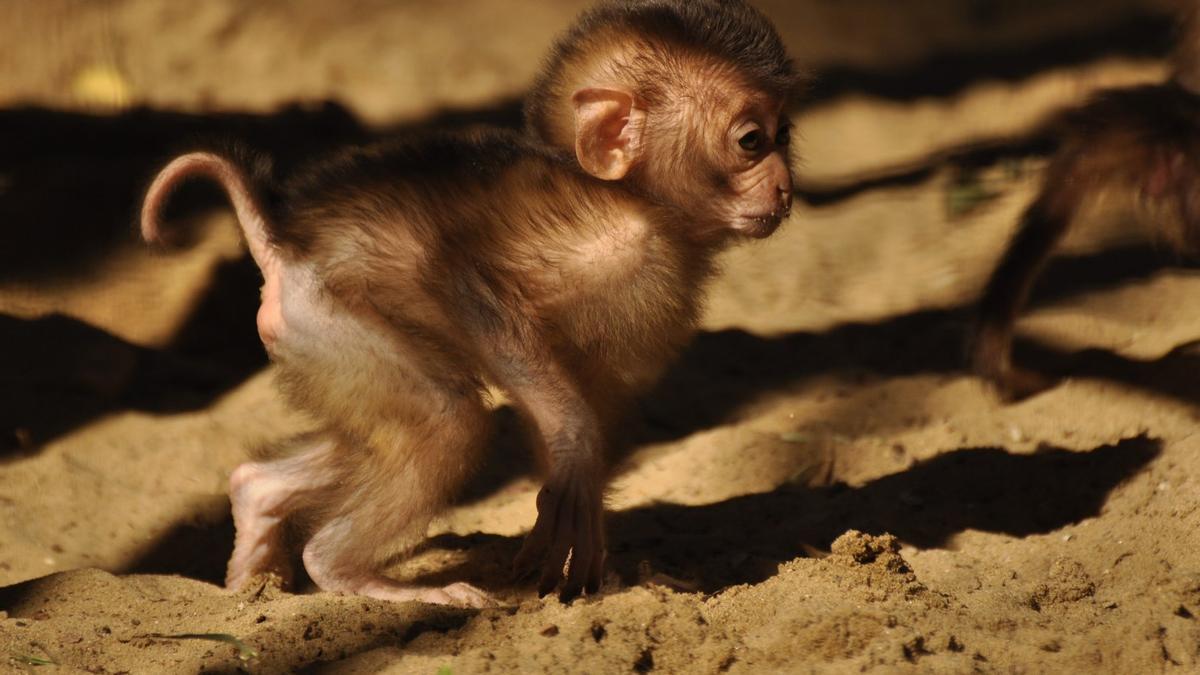Palm oil is present in countless foods that we buy in the supermarket, and to obtain this product needed deforest large areas of tropical jungle. The environmental consequences are enormous. For example, palm oil crops in southern Malaysia are killing baby macaques. Exposure to chemicals, recurring visits from humans and lack of protection from predators have become a deadly cocktail for children. Specific, Infant mortality rate of southern pig-tailed macaques is tripling (Nemestron macaque) and the very survival of the species is put at risk.
This is according to a recent study published in Current Biology, which not only warns of the direct damage that these modifications are causing to the terrain, but also of the long-term danger to the species.
It is known that These crops require a large space to guarantee their viabilitywhich has caused their massive exploitation to have destroyed part of the tropical forest in which these animals live.
Deforested areas for palm oil plantation / ibtimes
The species has been relegated to the areas adjacent to these plantations, but that does not mean that these primates have stopped entering them. In the plantations of Malaysia it is already easy to see children and adults taking advantage of the current situation to collect food more easily near the crops. However, What for adults has become a survival resource, for babies is a death trap.
In the last 10 years in the area, 57% of all calves born have died, and they did it before they were one year old. This high mortality rate, collected in the study in which several international research centers have participated, suggests that macaques are dying much more than other species.
The researchers studied two groups of macaques between 2014 and 2023 that lived in an area covered by both rainforest and palm oil crops. After almost a decade of monitoring, They saw how 52 of the 92 calves born during the study period died before they were one year old.. The average mortality was 66% in group 1 and 44% in group 2. However, in some years the situation was so critical that all the offspring died.
“Macaque babies are very likely to fall prey to wild dogs that roam in packs through crops or to be captured by humans and sold illegally as pets,” explains Nadine Ruppert of Universiti Sains Malaysia, the coordinator of the field study.
The species is being greatly affected by these crops / zoochat
The possible role of pesticides
However, remember that there are other risks that are usually ignored because their direct impact is not so visible: “We understand very little the potential long-term effects of the pesticides used to manage monocultures,” for example.
In fact, pesticides may be playing a key role in mothers themselves. “Certain harmful substances used in agriculture can cross the placental membrane and be transmitted to the fetus,” says the lead author of the article, Anna Holzner, who warns that there are also “certain fat-soluble molecules that can be transmitted through breast milk.” .
“Consequently, the longer chemicals accumulate in the mother’s body, the more they can influence fetal development during pregnancy and also during lactation“, Add.
Given these findings, researchers have put on the table the urgent need to address these threats of anthropogenic origin. “We know that The use of pesticides in agriculture has caused a drastic decline in insect populationsso chemical analysis is essential to understand the effects of pesticides on mammals,” insists Anja Widdig, co-author of the article.
“Our findings underline the critical need to implement environmentally friendly cultivation practices that minimize risks to wildlife populations and also to people living near plantations,” he concludes.
Link to the study: https://www.cell.com/current-biology/fulltext/S0960-9822(23)01657-3
………………
Contact of the Environment section: [email protected]
